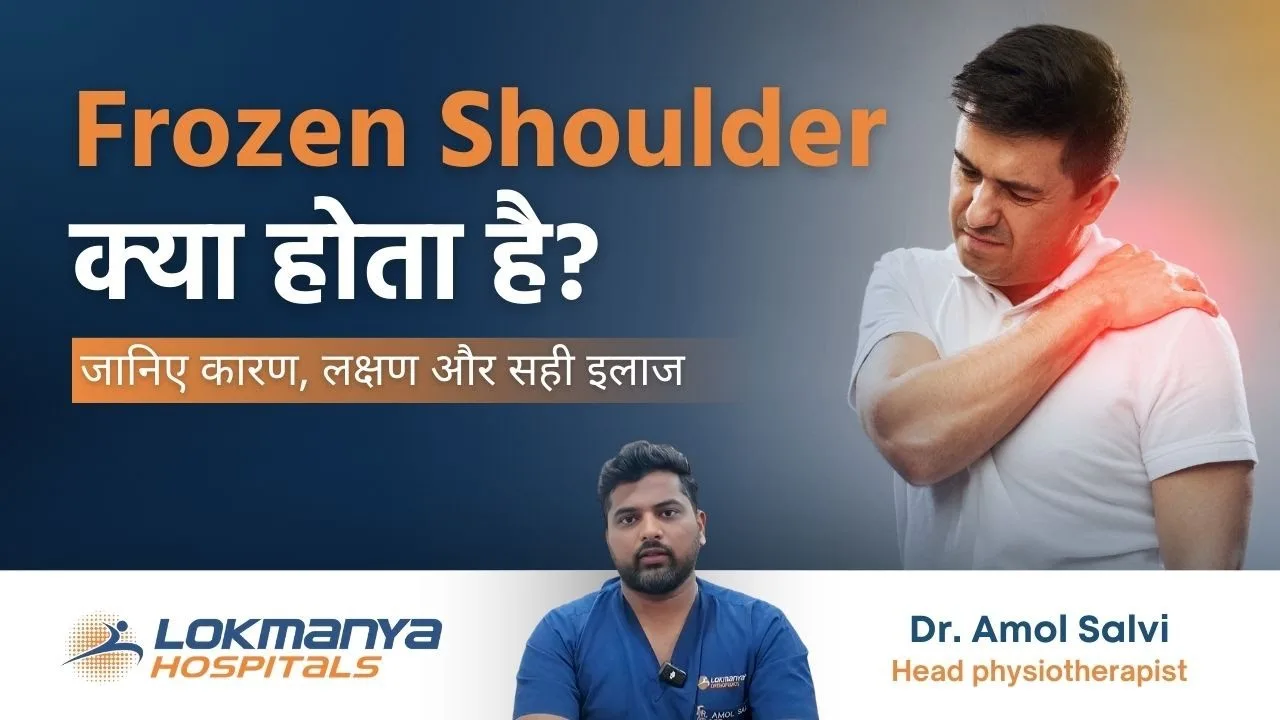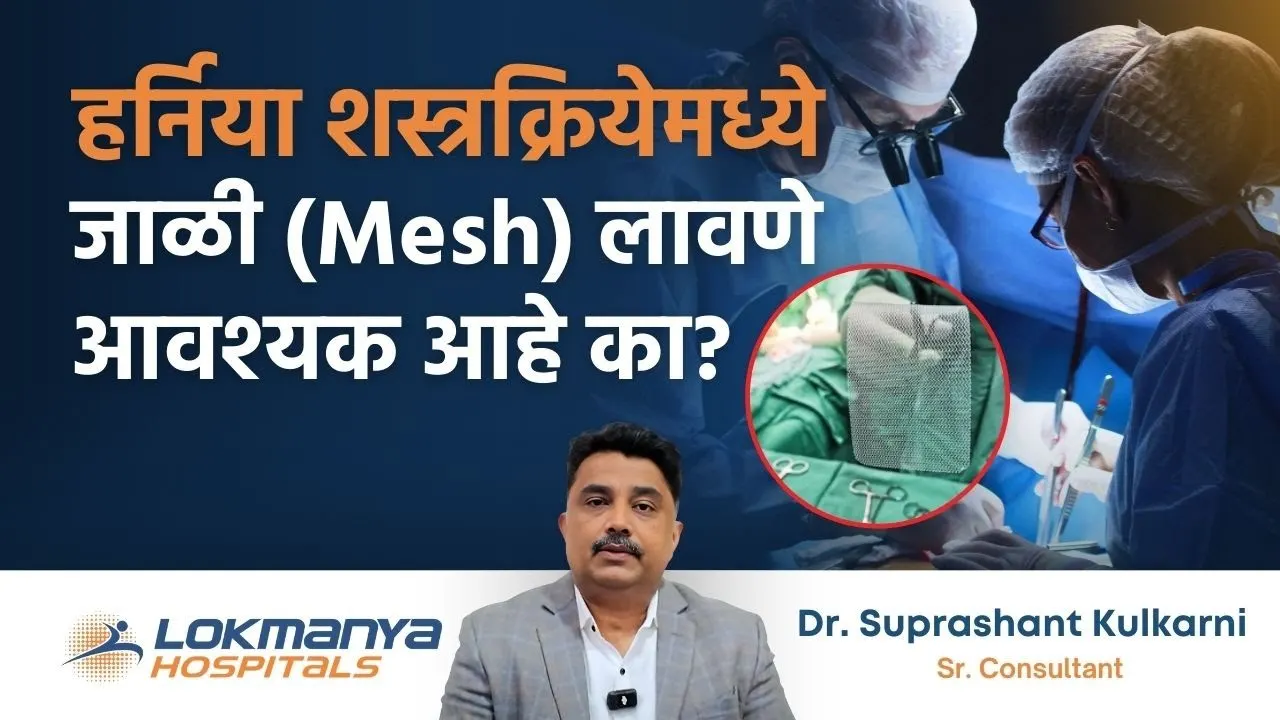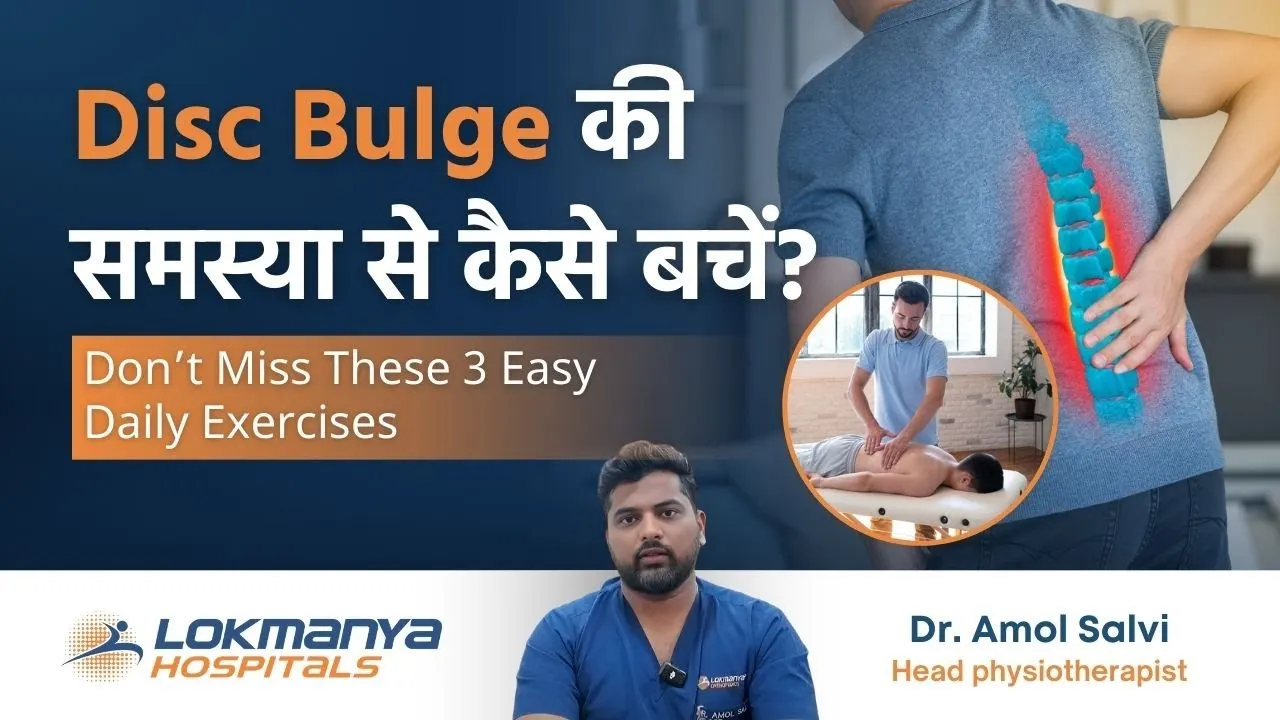Understanding Frozen Shoulder: Causes, Stages & Treatments
Category: Physiotherapy
Dr. Amol Salvi, Head Physiotherapist at Lokmanya Hospital, shares a comprehensive explanation of frozen shoulder—also known as adhesive capsulitis. This condition restricts shoulder movement and leads to pain, especially during the night.
What is Frozen Shoulder?
Frozen shoulder occurs when shoulder movements become restricted due to stiffness and inflammation in the joint capsule. It is clinically referred to as adhesive capsulitis. Patients often experience increasing pain and a gradual loss of shoulder mobility.
Causes of Frozen Shoulder
The causes can be categorized into two groups: shoulder-related and non-shoulder-related.
Shoulder-Related Causes
- Trauma: Falling or injury to the shoulder can cause movement restrictions.
- Tendinitis: Inflammation of tendons like supraspinatus or biceps tendonitis, often seen in gym-goers.
- Overuse Injuries: Repetitive movements can lead to shoulder stiffness.
- Rotator Cuff Injury: Damage to these muscles can also lead to a frozen shoulder.
Non-Shoulder-Related Causes
- Diabetes: A significant contributor due to its effect on connective tissues.
- Thyroid Issues: Hormonal imbalances can cause thickening of the shoulder capsule.
- Immobilization: When the arm is kept in a sling or immobile after injury, movement loss can lead to frozen shoulder.
Three Stages of Frozen Shoulder
Frozen shoulder typically progresses through three stages, each with unique characteristics and timelines.
1. Freezing Stage
- Duration: 1 to 3 months
- Symptoms: Pain, especially at night, and difficulty sleeping
- Patients usually complain of constant pain and discomfort.
2. Frozen Stage
- Duration: 6 to 12 months
- Symptoms: Increased stiffness, reduced pain
- Movement becomes more limited due to stiffness, though pain may decrease slightly.
3. Thawing Stage
- Duration: 12 to 18 months
- Symptoms: Gradual improvement
- The body starts healing on its own, and mobility slowly returns.
Treatment Options
First Stage: Managing Pain and Inflammation
- Avoid aggressive exercises as they may worsen inflammation.
- Use of electrotherapy modalities for pain relief.
- Consult orthopedic doctors for NSAIDs (non-steroidal anti-inflammatory drugs) to reduce pain and inflammation.
Second Stage: Mobilizing the Shoulder
- Physiotherapy techniques like mobilizations (graded from low to high), stretches, and guided exercises are introduced to reduce stiffness.
Third Stage: Strengthening and Recovery
- Focus on active exercises to regain full shoulder function.
- Recovery typically happens naturally, supported by targeted therapy.
Modern Techniques at Lokmanya Hospital
Lokmanya Hospital offers advanced physiotherapy solutions beyond traditional treatments:
- Tecar Therapy
- Matrix Therapy: Works at the cellular level to speed up healing.
- Shockwave Therapy: Used to break tight shoulder capsules and accelerate recovery.
These techniques have shown successful results in treating frozen shoulder efficiently.
Conclusion
Frozen shoulder is a complex but manageable condition with the right understanding and timely intervention. Through a combination of modern therapies and expert physiotherapy, patients can expect relief and recovery over time. Lokmanya Hospital provides both traditional and cutting-edge treatment options for patients experiencing shoulder pain and stiffness.
FAQs
1. What is frozen shoulder?
Frozen shoulder, or adhesive capsulitis, is a condition where shoulder movement becomes restricted due to inflammation and stiffness.
2. What are the main causes of frozen shoulder?
Causes include shoulder trauma, tendinitis, overuse injuries, diabetes, thyroid disorders, and prolonged immobilization.
3. What are the symptoms of frozen shoulder?
Symptoms include persistent shoulder pain, especially at night, and progressive stiffness that limits movement.
4. How long does frozen shoulder last?
It can last between 12 to 18 months, progressing through three stages: freezing, frozen, and thawing.
5. Can frozen shoulder heal on its own?
Yes, especially during the thawing stage, the body begins to naturally restore mobility over time.
6. What treatments are available for frozen shoulder?
Treatments include NSAIDs, physiotherapy, electrotherapy, mobilizations, stretches, and advanced options like tecar and shockwave therapy.
7. Is aggressive exercise recommended in early stages?
No, aggressive exercise in the freezing stage can worsen inflammation and delay recovery.






